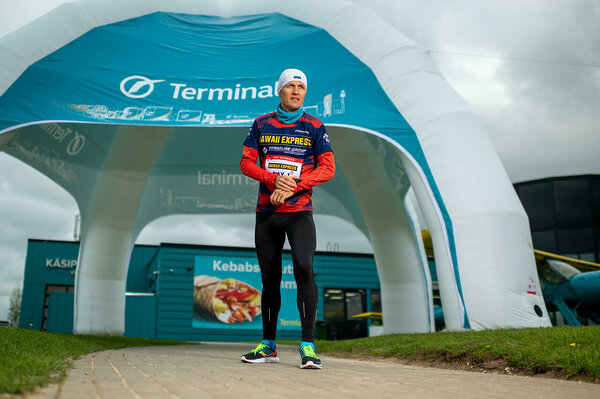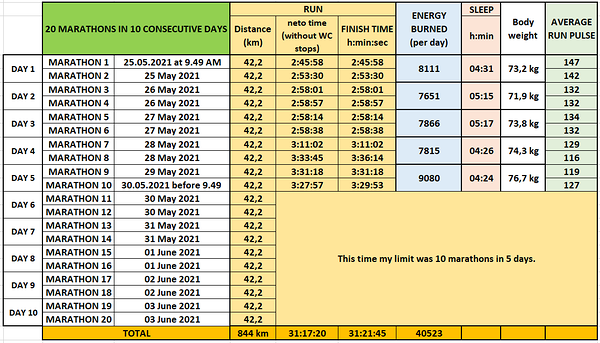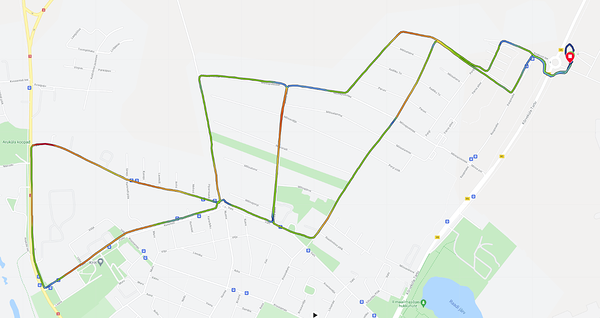From May 25 until June 3, I run two marathons every day. One full marathon (42.2 km) in the morning, the other one in the afternoon.
Running marathons on consecutive days is nothing new to me. I have done this many times in my previous challenges. For instance, last year I ran 20 marathons in 20 consecutive days, all marathons in less than 3 hours (read more here). On November 6, 2019, I finished a 40-times ultra triathlon. That means 40 consecutive days of a 3,8 km swim followed by cycling 180 km and running a full marathon of 42.2 km (read more here and here). A year before that, I finished 20-times ultra triathlon (read more here).
Photo Jakob MeierThis time my challenge is to run 20 marathons in 10 consecutives days. The goal is not only to finish 20 marathons, but to run all marathons faster than 3 hour. This challenge is particularly difficult because of the pressure of time. In order to complete the marathon in less than 3 hours, I have to run at least with an average speed of 14.1 kph (or 8.76 mph) This means that the average speed of 1 km must be at least 4 min and 16 sec (or 6:52 per mile).
Main rules
- I have to finish two marathons in 24 hours;
- I have to run exactly 42.2 km in one run - this means that I can't split the distance in any other way;
- time is continuous - i.e. any stops (including visiting the toilet) are included in the time;
- I I don't use other runners to keep up the pace or break the wind.
To get to know my body better, share experiences and succeed in future challenges, I record all the food and fluids consumed and monitor my health data. Therefore, before, during and after the challenge, SYNLAB analyzes my blood and researchers at the University of Tartu monitor changes in body composition (fat and lean mass), what impact the challnge leaves on my muscle tone and performance. I plan to share this information with you in my blog later.
All marathons I run on the track below. To finish the marathon, I have to complete five 8.44 km laps.


